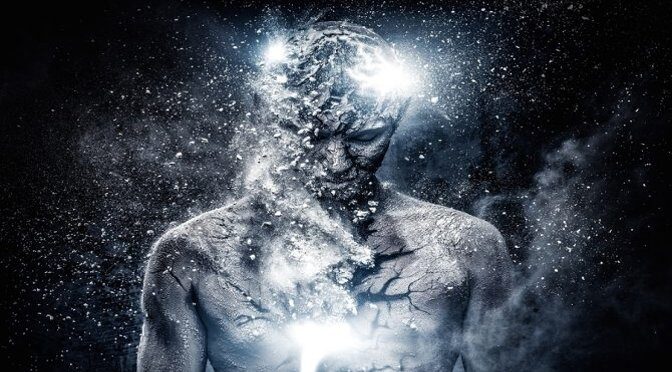The dream of living forever is as old as time. It’s a universal concept whether it’s due to a fear of death, love of life, a thirst for knowledge, or even the sensation of invincibility. Many ancient cultures declared different tactics to achieve eternal existence. Here are ten ideas that expanded through the passing centuries.
Japanese Mythology: Eat a Mermaid

The ancient Japanese believed in the ningyo, a creature described as a cross between a monkey and a carp. Like mermaids, they lived in the sea, and if caught, they brought bad luck or stormy weather.
Eight Hundred Nun is a famous myth in which a man accidentally served ningyo meat to his daughter.
After the girl had taken a bite, she was cursed with immortality. Her existence became depressing after watching her many husbands and children die, one after the other. Therefore she devoted her life to Buddha.
Because of her holy nunhood, she was fortunate to die at the ripe old age of 800.
Christian Mythology: Taunt Jesus
Legend says that there was a Jewish man to taunted Jesus as he was being brought to be crucified. The man hit Jesus with his shoe and told him to hurry up. Jesus replied that even though he was leaving, this man will have to remain until he returned.
Realizing the gravity of his actions, the man converted to Christianity and took the name, Joseph. However, the curse had painful side effects. Joseph could not sit or rest, except on Chrismas. At the turn of every century, he would become fatally ill and fall into a seizure, after which he will become 30-years-old once again.
Greek Mythology: Anger A God

A common thread in Greek tales is prideful humans who attempt to challenge or trick the gods. Many of them were punished for all eternity.
In one instance, Sisyphus swindled Zeus and trapped Thanatos, the personification of death. Now no one could die, and Ares, the god of war, was infuriated. As retribution, Sisyphus was forced to roll a heavy boulder up a hill every day, only for it fall back to the bottom at night. Forever.
Taoism: Cinnabar
Cinnabar is known as the common ore of mercury. It is also the central ingredient to the elixir of immortality, which the Taos called huandan (“Reverted Elixir”). This potion was believed to rid the body of imperfections that stunted it from achieving everlasting life.
Sadly, most of this elixirs were toxic, and many people died, including emperors. Therefore the external alchemy evolved into the focus on the internal, which harnessed one’s natural energy with yoga and other practices.
Sumerian Mythology: An Unknown Plant
As written in The Epic of Gilgamesh, the hero for it is so named was chasing the source of immortality to save his friend Enkidu from death. His search leads him to Utnapishtim who was granted everlasting life after build a large boat as per the gods’ instructions to survive a flood, similar to Noah. Utnapishtim tells Gilgamesh about a plant of cryptic origin and species that grants the eater eternal life. The description sounded similar to a boxthorn. However, after acquiring this sprout, Gilgamesh loses it to a snake. So we won’t ever know if it works.
Chinese Mythology: Peaches
Sun Wukong, the Monkey King, was appointed the Protector of Peaches, and he chose to eat one, which gave him one thousand years of life. He escaped but then was captured for judgment. Since he had also wisely swallowed the Pills of Immortality, Wukong was incapable of being executed. He went to war against Heaven, and Buddha was able to entrap him for five centuries.
These peaches were given to the gods for their immortality.
Hinduism: Amrita
In Sanskrit, ‘amrita’ means immortality. The Devas, or ‘gods’, had lost their immortality because of a curse and sought a way to regain this power.
They allied with their enemies, the Asuras, to spin the Milk Ocean which created a nectar called amrita. The Devas managed to trick the Asuras and drank the amrita themselves. Some yoga masters believe that amrita has spilled onto Earth in the haste to keep it from the Asuras.
Norse Mythology: The Golden Apples

All of the Norse deities required these apples to maintain their youth and immortality. Idun, the goddess of spring, was the orchard’s keeper. Loki tricked her and delivered her to the giant Thiassi with all of the apples.
Afterward, the Norse gods became older, and their power lessened. In their weakened state, they forced Loki to retrieve Idun and the fruit.
He succeeded by becoming a falcon, brought her back, and the gods regained their powers.
Greek Mythology: Ambrosia
Legend says ambrosia tastes like honey, and it was the drink of the Olympians that gave them their immortality.
Some mortals and demigods were privileged to drink it, like Hercules, whole others stole it and were punished, like Tantalus, who was trapped by a river and fruit tree but could never reach the food or drink.
Christian Mythology: The Holy Grail
The Holy Grail is the goblet that Jesus drank from at the Last Supper. Legends also say that it was the flask with which Joseph of Arimathea caught Jesus’s blood as he was on the cross.
One of the most famous searchers of the Holy Grail was King Arthur and his knights. Only the purest of souls can grasp it, and Sir Galahad gained immortality since he was the only one there able to touch it.
This article was written by The Hearty Soul. The Hearty Soul is a rapidly growing community dedicated to helping you discover your most healthy, balanced, and natural life.
Source:
Kelly Dickerson (August 16, 2016) https://mic.com/articles/151666/a-potential-newly-discovered-subatomic-particle-could-prove-a-fifth-force-of-nature#.yF730yfFP

